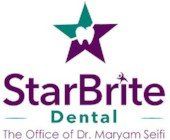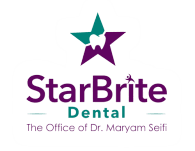How to Strengthen Tooth Enamel for a Lifetime of Healthy Teeth

The enamel of your teeth is the hardest substance in your whole body. But this durable material is constantly assaulted by the bacteria that live in your mouth as well as acidic foods and beverages and sugars that help the bacteria thrive.
Once you understand how you can protect and preserve this hard (but thin) material, you have a much better chance of preventing cavities, broken teeth and tooth loss. The fact is that there is much you can do to strengthen your own enamel which your body can never rebuild or renew.
Understanding Your Tooth Enamel
What is tooth enamel?
Enamel is the hard coating protecting the soft inner parts of each tooth. It is made up of minerals, including hydroxyapatite. While it appears to be opaque white, it is actually translucent. As many people age, the amount of enamel reduces and thins and they may start to have yellow teeth. What is actually being seen is the yellowish color of the dentin, a softer tissue that lies just below the enamel. Preventing this thinning is an important part of preserving your teeth as you age.
How does enamel become weak?
While enamel starts out strong, it can be weakened by exposure to acids. These acids can come from either acidic foods like citrus fruits or beverages or they can come from plaque, the bacterial film that forms on the teeth. If this plaque is not scrubbed and flossed away, the bacteria have time to create damaging acids. Acids can also come from a person’s stomach due to gastroesophageal reflux disease (GERD) or self-induced vomiting seen in bulimia. In short, exposing the teeth to acids of any type begins to erode tooth enamel. Tooth decay occurs more easily once there is weakened tooth enamel.
How much does it cost to strengthen enamel?
It may cost you nothing. In fact, working to strengthen enamel may save you money if you adopt the many enamel-preserving measures we recommend. You may no longer be purchasing soft drinks, candies, alcohol, fruit juices, desserts, frequent snacks and other enamel-damaging foods. If you currently consume these foods and drinks, you may see benefits in your pocketbook as you change your diet.
What is enamel made from?
It is almost entirely made from a combination of calcium and phosphate locked into a crystallized form called apatite. After enamel is created, the cells that guided its formation are eliminated, which is why you will never be able to generate more enamel to repair your teeth. That’s why it’s so important to preserve the enamel you have now.
What are the symptoms of tooth enamel weakening?
You will see signs like tooth sensitivity, discolored areas, or irregularities in the surface of teeth. The edges of the teeth may look rough or slightly jagged. Indentations or dips referred to as cupping may appear on the chewing surfaces. Any of these signs call for immediate action in coordination with your dentist so you can find out how to strengthen tooth enamel.
Your Program to Protect and Strengthen Tooth Enamel
In this section, we’ll look at what are the best ways to strengthen enamel. Each section will explain what are some foods that help strengthen enamel, what are the benefits of strengthening tooth enamel. how you can remineralize enamel and other steps you can take to keep it strong.
If you want to know how to strengthen tooth enamel, the most important thing to know is that foods and beverages have an enormous effect on your teeth’s enamel. Reducing the quantity of sugary and acidic foods you eat will start to alleviate the demineralization of your enamel.
How many of these foods or beverages can you reduce or eliminate from your diet?
- Sodas
- Sweetened rice
- Citrus fruits like lemons, grapefruit and oranges
- Vinegar
- Tomatoes (cooked tomatoes are a little better)
- Pickles
- Fruit juices, especially citrus juices
- Sports drinks
- Foods with fermentable sugars, like tropical or sticky fruits
- Starchy foods like potatoes or pasta
- Alcohol
Some people are going to look at this list and wonder what there is that can be eaten. Actually, there are plenty of foods left once you eliminate starchy, sugary and acidic foods. You can find a list of those foods in the next section below.
Eliminating refined sugar and acidic drinks may not be easy for many people. But this change can help keep tooth enamel strong and prevent tooth decay while it also prevents enamel erosion. Just remember this: eating starchy foods combined with acidic or sugary foods is very hard on your teeth. The more you can avoid it, the better it is for your teeth.
When you eat acidic fruits without taking action to clean these acids from your smile, those fruit acids create damage, possibly for hours. To promote healthy teeth, restrict soda and fruit juice or eating sugary foods to those times that you can brush your teeth soon after. Chewing gum after consuming these foods and drinks also helps keep teeth healthy by stimulating saliva which balances the acidity. Just be sure it’s sugarless gum.
Beneficial Food That Strengthens Enamel
The foods that are beneficial for strengthening teeth, according to the American Dental Association and other experts, include those rich in calcium, phosphorus and other minerals or those with low acidity. Here are the foods that provide the minerals your body needs to support your tooth enamel. At the same time, they can help balance the pH (acidity or alkalinity) of your saliva and mouth.
- Yogurt (unsweetened)
- Cheese
- Milk and other dairy products
- Carrots
- Celery
- Leafy green vegetables
- Apples
- Lean protein-rich foods
- Nuts
- Seafood
- Beans
- Peppers
- Broccoli
- Tofu
Eating healthy fats such as those found in lean proteins, seafood and nuts—as well as when you eat probiotic-rich foods—not only helps with remineralization of your teeth, it also supports good overall health and strong bones. That’s because your bones are dependent on your calcium intake, too. Also, consuming probiotics adds good bacteria without introducing potentially harmful strains.
A balanced diet that has plenty of vitamins and minerals will protect your entire body and immunity as well. Remember, treats like cheese and nuts are naturally sugar free and do not promote dental caries.
Good Oral Hygiene Routines to Follow
Proper oral hygiene is very important for enamel preservation. This includes the time you spend each morning and night brushing and flossing and other choices you make throughout the day.
- Brush twice daily. Brush your teeth morning and night for at least two minutes each time. Use a soft toothbrush and replace it every few months or earlier if it shows signs of wear. Do not brush aggressively or with pressure. Brushing teeth regularly is one of the most important actions you can take to keep teeth strong.
- Floss your teeth at least once a day. If you have any doubts about the right way to floss, ask your dental hygienist or dentist. This action will remove food particles from between your teeth as well as removing plaque that wants to accumulate on your enamel.
- Maintain a regular schedule of visits to your dentist. Remember, once enamel is gone, it can’t be replaced. Therefore, any small areas of enamel decay should be repaired as soon as possible. Regular cleanings will remove hardened tartar from your teeth. You can remove plaque from your teeth at home, but once it hardens into tartar, it must be removed at each visit by a hygienist or dentist. At the same time, they can remove surface stains from your teeth, giving you a whiter smile.
- Brush after each meal. It’s even better if you can brush after each meal compared to brushing twice a day. Wait an hour after eating, however, because the acids in the meal will soften the enamel slightly. Waiting to brush your teeth allows your enamel to re-hardened and won't be removed by brushing.
- Rinse with water after meals and snacks. If you can’t brush after a meal or if you’re having a between-meal snack, rinsing thoroughly with pure water will reduce the number of bacteria in your mouth and wash away the carbohydrates that provide the bacteria food. This simple action can reduce the harmful effects that damaging acid bacteria produce.
- Hydrate. Drinking enough water supports the production of saliva which is important for oral health, and also helps remove harmful substances like toxins from your body.
- Chew sugar-free gum. After a meal or between meals, chewing gum can promote saliva production which washes the surface of the teeth with teeth-strengthening minerals. Chew sugar-free gum with xylitol which can actually reduce the effects of acids that might be present on the surface of your teeth.
Tooth Enamel Strengthening Treatments
There are some treatments that your dentist can do to help you prevent tooth enamel loss. Ask for your dental professional’s advice on the following care in the dental office or at home.
- Fluoride toothpaste: Fluoride is a natural mineral that strengthens weak tooth enamel. Ask your dentist for which toothpastes they might recommend.
- Mouthwash: Your dentist may have a preferred mouthwash that is antibacterial or that balances the acidity/alkalinity of the mouth.
- Sealants: Talk to your dentist about dental sealants. This is a coating applied to the chewing surfaces of teeth that keeps bacteria from coming in contact with enamel. If there is already weakened tooth enamel, this might be an important way to keep teeth healthy. Sealants are often recommended for young patients who might not brush as well or as long as recommended. Sealants can also be helpful for people whose enamel is weak or soft.
Other Tips to Avoid Damaging Tooth Enamel
As you look for how to strengthen tooth enamel and improve your oral health, here are some additional tips to help you. In some of these cases, people will need to get assistance through their medical doctor. Other steps can be taken at home. See if any of these ways of preventing weakened enamel could work for you. Once you address these causes, you can avoid some of the problems of weakened tooth enamel.
- Treat dry mouth.
When a person’s mouth is chronically dry, bacteria can thrive. That’s because saliva is actually a mild antibiotic. Some medications will make mouths dry so you may need to talk to a doctor about a change. Also aging or radiation treatments for cancer increase dry mouth. People with sleep apnea also have dry mouth if they sleep with their mouths open. Talk to your doctor about how you can keep your saliva production adequate.
- Add vitamin D supplements. Vitamin D plays a strong role in dental health. In youth, it supports the mineralization of enamel and in all ages, it helps protect the health of the dentin that lies just under the enamel.
- Get treatment for severe heartburn. When heartburn becomes severe, acid reflux can also occur. The presence of stomach acid in the mouth is damaging to tooth enamel.
- Ask your doctor to treat teeth grinding.
The remedy for
teeth grinding can be as simple as
wearing a night guard that keeps your teeth from making contact with each other. The side benefit is that eliminating teeth grinding can also eliminate a consistent jaw ache and pain in the temple or neck.
- Stop smoking or don’t start. Smoking or use of other tobacco products is very hard on one’s teeth and gums and detrimental to one’s oral health.
The Importance of Caring for Your Teeth
Once you are an adult, you can find many ways that strengthen tooth enamel, but you won’t actually be able to rebuild tooth enamel. Therefore, each tooth’s enamel is valuable. Maybe one day science will have a way we can rebuild enamel but it doesn’t exist yet. The protection of your tooth enamel’s integrity and your oral health are up to you and your choices.
There are so many sources of good information on how to reduce the risk of damage to your tooth enamel’s strength that you may be able to find additional methods of improvement. For many people, improving their health is a process that takes time. It may be necessary to make changes one layer at a time. On this gradual basis, you may be able to make dramatic improvements that could otherwise be difficult. Taking an action that strengthens teeth, even if it’s eating acidic foods less often, is the best thing you can do to keep teeth and mouth healthy.
If you need any assistance with problems with teeth, gums or any aspect of your oral health, reach out to us
at StarBrite Dental. We maintain extremely high levels of technical excellence and are ready to help you preserve, recover or restore your dental health. Call us at
(301) 349-1034 to schedule an appointment.


